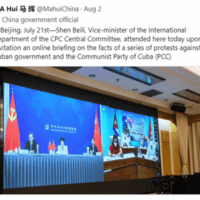-
We leaked the upcoming IPCC report!
The report explicitly states that incremental change is not a viable option. It states that individual behavioural changes alone are insignificant. It states that justice, equity and redistribution are essential to climate policy.
-
Revolutionary socialism is the primary political ideology of The Red Nation
This position paper of the Third General Assembly formally adopts revolutionary socialism and liberation as the primary political ideology of The Red Nation.
-
Prioritising profits reversed health progress
Instead of a health system striving to provide universal healthcare, a fragmented, profit-driven market ‘non-system’ has emerged. The 1980s’ neo-liberal counter-revolution against the historic 1978 Alma-Ata Declaration is responsible.
-
Richard Lewontin: Race science for the people
We can now say with great confidence that our species, anatomically modern humans, does not have biological races. We know this in large part due to the contributions of Richard C. Lewontin.
-
Streamers versus socialism
Dennis Broe reports on how the streaming services are attempting to subvert government-financed and often more progressive film and television production
-
Leaked report of the IPCC reveals that the growth model of capitalism is unsustainable
Another leak of the UN report warns that the only known way to avert climate breakdown is to avoid any model which is based on perpetual growth.
-
Counter Western bias against China by remembering Peter Norman’s solidarity
International media engaged in Sinophobic rhetoric during the recent Olympic games in Tokyo.
-
Imperialism Then and Now: Wealth, Unemployment, and Insufficient Demand- Part 1/3
Hello and welcome. I’m Lynn Fries producer of Global Political Economy or GPEnewsdocs. Today’s guest is Prabhat Patnaik. He is talking about his read on the history of capitalism that he breaks up into 5 periods from colonialism into the present.
-
Mercenaries: From Colombia to the World
People frequently refer to Colombia as “the coffee-growing country,” due to its high volume of coffee exports, but in recent years Colombia has found itself in headlines for a different commodity.
-
On the brink–the scenario that the IPCC is not modelling
Daniel tanuro responds to the recently released IPCC Physical Basis Report, which is a contribution to the Sixth Assessment Report on climate change.
-
A guide for the U.S. antiwar movement
Six Principles for an Increasingly Authoritarian Age.
-
World mobilises against the U.S. on Cuba–including China
Cuba is a small country. But because it became in 1959 the first country in the Western hemisphere to thoroughly break with U.S. domination, and embark on a path of national independence, events concerning Cuba have a geopolitical significance many times greater than its size. Present events show that this continues to be the case.
-
On the IPCC’s latest climate report: What does it tell us?
The UN-sponsored Intergovernmental Panel on Climate Change (IPCC) recently released its latest comprehensive report on the state of the earth’s climate. The much-anticipated report dominated the headlines for a few days in early August, then quickly disappeared amidst the latest news from Afghanistan, the fourth wave of Covid-19 infections in the US, and all the latest political rumblings.
-
The documentary ‘Her Socialist Smile’ explores a different side of Helen Keller
Helen Keller (1880-1968) was one of the most inspirational figures of the 20th century. But most people know the writer and activist for her determination to overcome the barriers facing people with physical disabilities in her lifetime, not for her equally fierce determination to replace American capitalism with a system in which the workers control the means of production.
-
Relative surplus value: The class struggle intensifies
For any working period—whether it be a day, an hour, or five minutes—part of the period is “necessary labor” and another part is “surplus labor.”
-
North Dakota gets fracked
When the big shutdown finally takes hold in the Bakken, the frackers will have gone and most wells abandoned, and people in the region will still have to deal with the illegal trash dumps, polluted streams, health problems, and other unfortunate effects of the boom.
-
A monster pandemic
According to this conceptual genealogy sketched by literary theorist Justin Clemens, two important homophonic variants of “Pandemick” emerged in the aftermath of the English Civil Wars.
-
Privatised health services worsen pandemic
Decades of public health cuts have quietly taken a huge human toll, now even more pronounced with the pandemic. Austerity programmes, by the International Monetary Fund (IMF) and World Bank, have forced countries to cut public spending, including health provisioning.
-
‘We are in nobody’s backyard’: rejecting geopolitical and historical fatalism
The catch-phrases “transnational criminal organizations,” “humanitarian assistance” and even “disaster relief operations” are worn-out euphemisms for the neo-colonial presence of the U.S. Empire and its European allies in Guyana and throughout the region.
-
The household and the state
Just as a household cannot “live beyond its means” forever, and sooner or later its creditors not only stop giving loans but take away the assets of the household for defaulting on loan repayment, likewise, the State cannot “live beyond its means” forever and go on borrowing ad infinitum; sooner or later its creditors stop giving loans and even attach its assets.


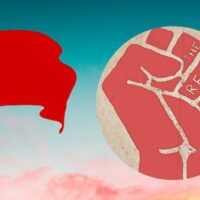



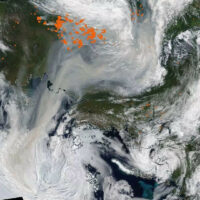

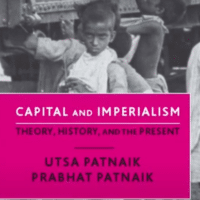

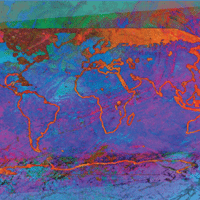
![Minnesotans protest endless war on 17th anniversary of the start of the Global War on Terror. [Source: antiwarcommittee.org]](https://mronline.org/wp-content/uploads/2021/08/us-out-of-afghanistan-anti-war-committee-1-200x200.jpeg)
